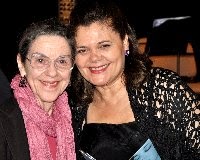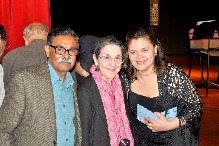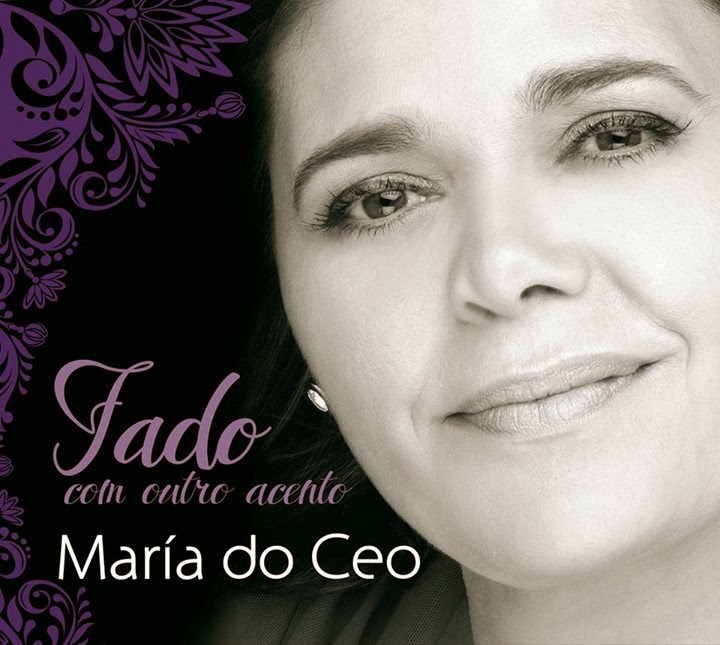 A while back I blogged about an Ursula K. Le Guin story that injects ants with human consciousness and modern human values, and opined that I would like to see a story that didn’t see eusocialism as oppressive — I think we can learn from these little citizens. I have since (while doing immersion tasks on Duolingo) found exactly that story in the form of a fable by author Horacio Quiroga, which seems to be a testament to the responsibilities of an individual to her community above personal will. The ending seems dead serious, but the story seems to have an ironic bent, too, in its didacticism against intelligence (even as cleverness and learning saves the bee heroine).
A while back I blogged about an Ursula K. Le Guin story that injects ants with human consciousness and modern human values, and opined that I would like to see a story that didn’t see eusocialism as oppressive — I think we can learn from these little citizens. I have since (while doing immersion tasks on Duolingo) found exactly that story in the form of a fable by author Horacio Quiroga, which seems to be a testament to the responsibilities of an individual to her community above personal will. The ending seems dead serious, but the story seems to have an ironic bent, too, in its didacticism against intelligence (even as cleverness and learning saves the bee heroine).
This story is closer than the Le Guin, at least, to understanding the eusocial colony of insects. I particularly like the use of “sister” as greeting among bees in the hive, since they would be sisters, as well as carrying the flavor of fellow travelers in the early 20th Century, when the fable was written. I have not read enough Quiroga to know his intent but the era and the location make it more likely that he was sympathetic to socialism, having seen the hell foreign capitalists wrought on his continent.
It seems to be published as a picture book, in both Spanish and English, but minus it’s classic status I seriously doubt any publisher would do a children’s book with such a message against personal exceptionalism and individualism. Unwavering faith in these principles seem to cross all religious and political factions. The fable now would have to take the turn of Lionni’s Frederick, where the other bees come to love the lazy bee for her imaginative flights. For the record, I absolutely love Frederick and can barely read it without tearing up. But sometimes I feel only one side of the story is every told, and that such fables not only prevent us understanding the natural world, but from fully understanding ourselves.
What other fables about ants and bees (or other eusocial organisms) that seem to deal with the role of an individual in a society are out there?
Filed under:
Miscellaneous Tagged:
bees,
fables,
lazy bee,
quiroga 


With blog problems these past few days, I'm behind in my posting. Last Friday was a fabulous evening at Torre Vilariño (a later post and photos will come), and we spent both Saturday and Sunday in Monforte enjoying the Medieval Faire (again, a later post and pictures will come).
First, though, I have to share a concert we attended in Quiroga by a fabulous fadista (Fado singer)— María do Ceo. She's very popular here and famous worldwide.
I first heard María do Ceo sing last June when she gave a concert at Rectoral de Castillon. At that time, I bought the CD shown to your left, and I blogged about it
HERE. It was an unforgettable evening, and my first exposure to Fado. (That was when Rajan and I we were taking turns with trips while the other nursed our ailing dog during his last days.) When I returned home and played the CD for Rajan, he loved Fado. Attending one of her concerts became a priority for this trip.
We went with friends Craig and Melanie, who hadn't heard Fado before, and they became converts, too. At the end of the concert, we gathered with others to get María do Ceo's autograph. She is a remarkable performer, and very down-to-earth and unpretentious after performances. Everyone was having their picture taken with her, and she welcomed us to have our picture with her too. What a treat!
 |
After a long concert, she
still had buoyant energy
as she signed autographs. |
 |
She took time to converse
with people who lingered.
A truly gracious person. |
 |
She remembered my name (from FB
and the early blogpost.) A very
modest celebrity who makes you
feel welcome and at home. |
 |
| I enjoyed introducing her and Rajan. |
 |
She was kept pretty
busy with autographs. |
You can go to her website and see her CD's
HERE.
We bought a new CD that we enjoy as much as the first one, and now I wish I had bought more. Each one is unique. The one we bought isn't shown in the Discography section on her website above. But there are many performances by her on YouTube at
this site, so you can get a feel for her singing.
Fado, as I mentioned in my earlier post, is a distinctive art form of Portugal, similar in one sense to American Blues, in that it is emotional and comes from deep in the heart and soul. But Fado has a variety of influences, one of them Moorish, and you can hear that in the warbling minor trills in some of the songs. The word itself means "Fate." Usually the songs are about deep yearning and thwarted dreams. Some of them can have a cheerful beat, but it's a fatalistic cheer, dealing with life's outcomes. It's not depressing, though. It's a response to what life deals you. I'm hooked on Fado, and if I can find another Fado concert, I will. Unfortunately, we will be gone before María do Ceo's next concerts in Galicia, but we will watch her schedule and hope to hear her during our next visit in the fall.
María do Ceo is from Portugal, but she lives in Ourense, Galicia. Her songs are in Portuguese, but her singing is quite popular all over Galicia.
Gallego, or
Galego, or
Galician—all are accepted names for the Galician language—is a sister language to Portuguese, so all her songs are understandable to Galicians. I read recently that Gallego and Portuguese share 85% of vocabulary. Our neighbors, in fact, have told us if we knew Portuguese, we would be able to understand Gallego.
Meanwhile, I hope you will visit her website and enjoy the video site
HERE. I strongly recommend "Lela" and "Negra Sombe". But, really, they are all good.
How about you? Do you have favorite music genre? A favorite singer? Please share.

 A while back I blogged about an Ursula K. Le Guin story that injects ants with human consciousness and modern human values, and opined that I would like to see a story that didn’t see eusocialism as oppressive — I think we can learn from these little citizens. I have since (while doing immersion tasks on Duolingo) found exactly that story in the form of a fable by author Horacio Quiroga, which seems to be a testament to the responsibilities of an individual to her community above personal will. The ending seems dead serious, but the story seems to have an ironic bent, too, in its didacticism against intelligence (even as cleverness and learning saves the bee heroine).
A while back I blogged about an Ursula K. Le Guin story that injects ants with human consciousness and modern human values, and opined that I would like to see a story that didn’t see eusocialism as oppressive — I think we can learn from these little citizens. I have since (while doing immersion tasks on Duolingo) found exactly that story in the form of a fable by author Horacio Quiroga, which seems to be a testament to the responsibilities of an individual to her community above personal will. The ending seems dead serious, but the story seems to have an ironic bent, too, in its didacticism against intelligence (even as cleverness and learning saves the bee heroine).







